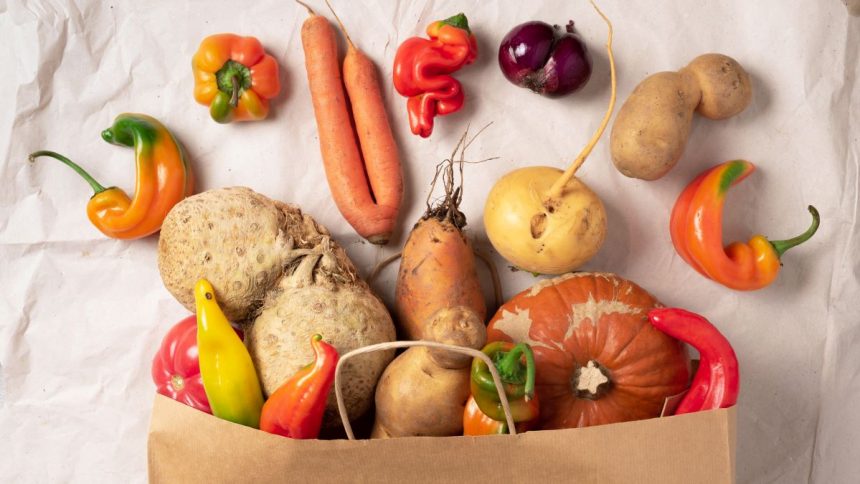Do you tend to avoid oddly shaped, inconsistently sized, and slightly blemished produce at the grocery store? Or opt for unblemished items despite minor imperfections? While these reactions are natural, the appearance of food doesn’t determine its taste or quality. In fact, wasting imperfect groceries contributes to a significant amount of food waste in the United States, estimated at 30% to 40% of the food supply.
Aside from the ethical implications of wasting perfectly good food, food waste also has a negative impact on the environment, contributing to climate change through methane emissions from landfills. Brands are now highlighting the value of “imperfect” groceries, encouraging consumers to rethink their perspective on these items and reduce food waste.
One such brand, D’Vash Organics, proudly labels its date syrup as being made from sustainably sourced “ugly” dates, emphasizing the use of less visually appealing yet perfectly edible produce. Embracing imperfect foods not only helps reduce waste but also supports sustainability.
Embracing Imperfection
Companies like Imperfect Foods have made it their mission to promote imperfect items and reduce food waste. By showcasing the beauty and value of odd-shaped, broken, or blemished foods, these brands offer a market for surplus, ripe, and unique grocery items that traditional stores may overlook.
Imperfect Foods, a food-delivery service operating in 40 states, celebrates artisanal and deliciously unique items that might otherwise be deemed unfit for shelves in conventional supermarkets. From pasta shapes to sunburnt mangoes, these imperfect products find a home with consumers who appreciate their charm and taste.
Browse Imperfect Aisles
For those interested in incorporating imperfect groceries into their diet, online delivery programs like Imperfect Foods offer a sustainable alternative. Take the time to explore these options and consider supporting brands that champion sustainability and reduce food waste. Additionally, grocers looking for imperfect produce sources can turn to platforms like Full Harvest to find quality yet visually imperfect items.
Reducing Food Waste
If you’re committed to minimizing food waste, consider including imperfect groceries in your meal planning. The FDA recommends practical tips like proper refrigeration, freezing excess food, and following food safety guidelines to prevent waste. By embracing imperfection and supporting brands that prioritize sustainability, you can make a positive impact on the environment while enjoying delicious and unique food products.
Editor’s Note: This article was originally published on November 9, 2021, and updated in June 2024.






